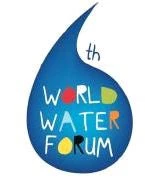
 Climate change will multiply the climate risks that already make agriculture vulnerable to uncertain rainfall patterns. And most of the exploitable resources are in International basins, making them harder to manage. The world has 263 shared basins and 273 shared aquifers affecting 145 countries (other countries do not have shared basins). To put it in even starker relief, His Excellency Mr. Chen Lei, Minister of Water Resources, People's Republic of China, told us that managing natural resources sustainably-- of which water was one of the most important-- was the greatest development challenge that China had ever faced.
Climate change will multiply the climate risks that already make agriculture vulnerable to uncertain rainfall patterns. And most of the exploitable resources are in International basins, making them harder to manage. The world has 263 shared basins and 273 shared aquifers affecting 145 countries (other countries do not have shared basins). To put it in even starker relief, His Excellency Mr. Chen Lei, Minister of Water Resources, People's Republic of China, told us that managing natural resources sustainably-- of which water was one of the most important-- was the greatest development challenge that China had ever faced.
It will not be easy to mobilize more water. Similarly, new land will not be easy to find. As estimated 80-90% of new food production will have to be on existing land. We must increase both land and water productivity.
Daunting? Certainly, it is a huge challenge. But there is a lot that can be done. His Excellency and other speakers noted examples of impressive increases in water productivity from around the world. It takes financial investment. But more importantly, it takes concerted leadership to implement a good plan, one which limits water use in agriculture to safe amounts and provides incentives for farmers to use water productively. When faced with an existential issue on this scale, innovation will accelerate.
Image: Man carrying bundle of rice in the Philippines. Photo © Danilo Pinzon/World Bank


Join the Conversation